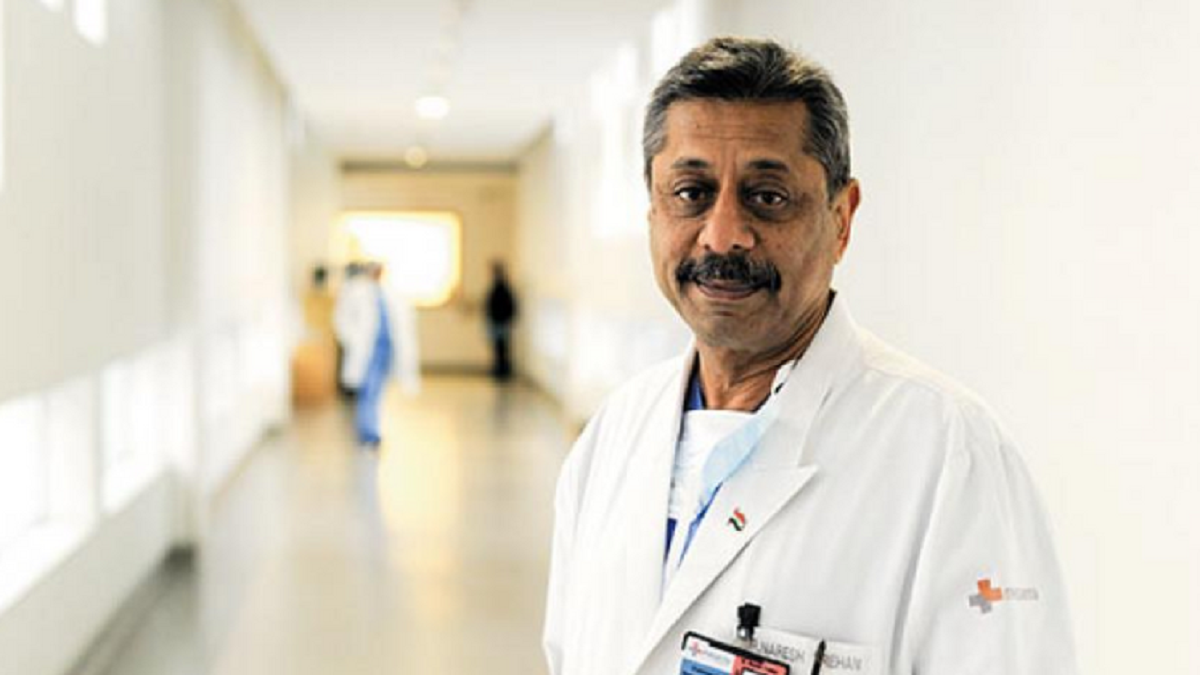
As the country prepares for Unlock 4.0 from 1 September with more than three million Covid cases, Dr Naresh Trehan, chairman of Gurugram’s Medanta Hospital, says that the government has to play a balancing act between life and livelihood and has to open carefully with strict protocols. “We have to be very careful in understanding that we are no different from the rest of the world. Virus doesn’t spare anybody. No matter how much we open, unless we do it in a very strict and enforced protocol manner, we will keep having the numbers that we are seeing,” he says.
On 28 August, India recorded a single-day spike of 77,266 cases and the country’s total Covid tally stood around 33.87 lakh cases. States like Uttar Pradesh, Karnataka, Tamil Nadu, Andhra Pradesh and Maharashtra are reporting most of the Covid-19 cases. India also holds a dubious distinction of being a country with the highest new cases in the world for 22 days.
“There were states having much less numbers which are now rising. We need to check from where high numbers are coming from. Uttar Pradesh and Bihar are in bad shape now. The first survey done in Delhi showed 23 percent developing antibodies and one month later, it came to 29 percent. There are pockets in Pune which are showing 50 percent. The pattern of this infection is like other countries have it, peaks in one area and at other places it goes down,” says Dr Trehan.
Explaining the facts and the reasons behind the spike in the number of cases and what has to be done to control the situation, the doctor adds,” There are three aspects to it. One is the fact that once the number starts going up, the government gets alerted more and governments which may have thought that they were ahead of the curve, realise that they were as bad as anybody else. So, then they start reacting and try to control it. The second thing that happens is that medical facilities in those areas then wake up and start treating properly. And the third thing that happens is that the public gets scared.”
Giving the example of Bengaluru, the doctor said that the city thought that it had controlled it very well and people became careless and started going out and restaurants opened up.“ But then it spreads like wildfire. Public gets scared and they start protecting themselves. Then the third waves come out and the numbers go down. This is the difficult pattern which is in India today. So, the basic thing is where and when will it end,” he says.
On the possibility of a vaccine and herd immunity, he adds, “There is hope, maybe real or maybe not so real, is a vaccine. The other is if we do another survey in Delhi now and we get an antibody count 29 percent gone up to 40 percent, that shows there is some amount of herd immunity happening. So, the herd immunity to get effective, we have to reach 60-70 percent which will happen in the next 2-3months. Even before the vaccine arrives, we will have areas that will peak and come down. Then the population is immunizing itself as it goes along. These are three factors which are paying in this Covid-19 pandemic which we have to observe very carefully.”
According to the doctor, people themselves play an important role and their carelessness is the biggest concern. “The government has to do what it can do and it’s the people who need to stop being careless and then saying that they are fed up and going out,” he says.
However, speaking about the country’s battle against the deadly virus so far, he says that on a brighter side, 90 percent people are going through it without much trouble and those who are unhealthy are suffering but the proportion of them is still surviving that’s why the mortality rate is less.